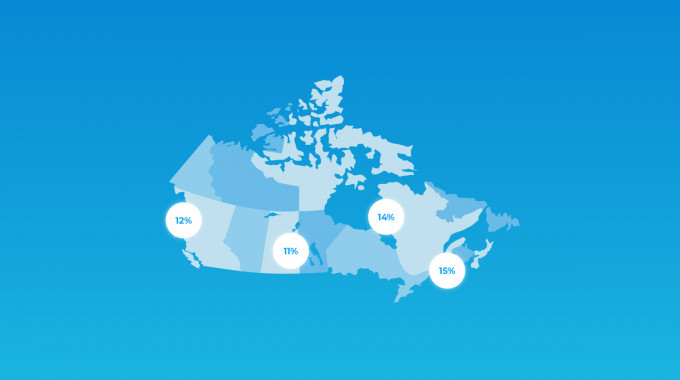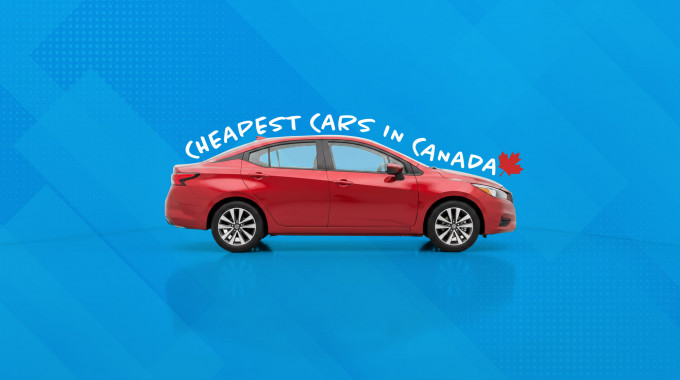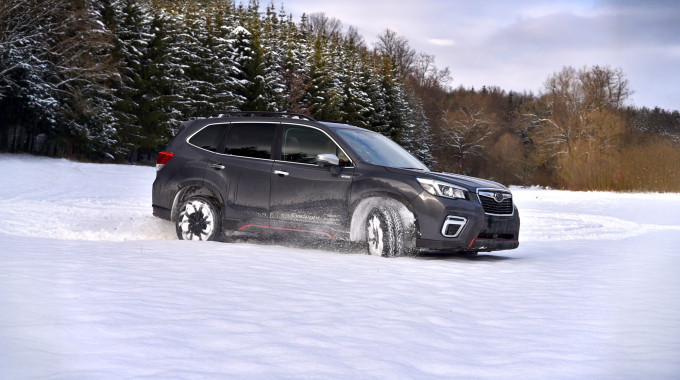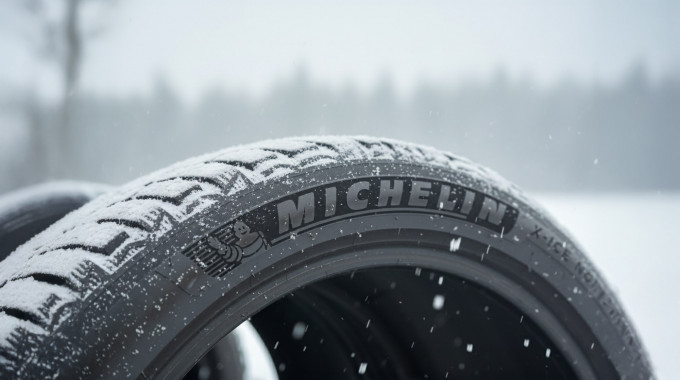
Car Sales Taxes Across Canada on New & Used Cars
When George Harrison wrote his famously catchy song “Taxman” back in 1966, it was considered a protest against England’s arguably excessive tax structure. Over 50 years later and two aspects about this song remain true – the Beatles rock and paying tax does not. Let’s talk about car sales tax and how you can use it to your advantage...
Paying the taxman is especially painful when it comes to major purchases like a car. It can be as high as 15% on the sticker price depending on which province you live in. It can even be as high as 25% if you’re buying a luxury vehicle in British Columbia. Knowing the associated costs when it comes to taxes on a new or used car significantly affects your buying power.
But are all car taxes in Canada created equal? Whether you’re paying GST, HST, PST or RST on a motor vehicle purchase, the tax rate is going to vary province to province. So, is it possible to purchase a car in a province with lower taxes and score a deal? Let’s explore this concept and see if it’s a feasible way to avoid paying an inordinate amount of car sales tax.
Buying a Car in Another Province
Buying a car is not a simple transaction. It’s not like buying a coat in Toronto and wearing it home to Montreal. Vehicles must be registered with government agencies, which makes buying one across provincial borders a little tricky. Naturally, you want to register your car in your home province so that complicates the idea of driving home your new purchase.
Even if you choose not to register it yet, you will need to find transportation to bring your new purchase home. That could be expensive. And if it’s been previously registered in a different province, you will need to transfer the title and registration to your home province. Expect to pay between $80 and $150 for this service.
How much are taxes on used cars, and do I have to pay tax on a used car from a private seller?
GST, PST, HST, RST, QST—there are A LOT of acronyms to know when it comes to paying tax on retail goods in our country. Thankfully, you don't need to know about all of them; just the ones relevant to the province or territory where you buy a car.
The GST (Goods and Services Tax) is a federal tax of 5% and there’s no escaping it, unless you are buying from a private seller. In BC, however, you may not have to pay 5% GST on a private sale, but you will pay up to 5% more in PST than you would at a dealership (see below for a detailed breakdown on how taxes work in each province and territory). PSTs are provincial sales taxes while HST is a harmonized sales tax combining GST and PST. Meanwhile, QST is Quebec’s version of the PST, and you will pay RST in Manitoba, known as the Retail Sales Tax.
Confused yet? We simplify it below.
A common misconception about buying a used vehicle privately is that you don’t have to pay tax on the purchase. Picture a scenario where you find a car listed on a website and you agree to buy that car. You pay the asking price and no tax is factored into the sale.
Because the private seller is not a GST/HST/PST registrant – such as a dealership that claims it as part of their business taxes – they are not required to collect the tax from you. However, once you register your vehicle, your provincial government could collect the tax from you on the sale. It differs by province and territory, but in most provinces private car sales require you to pay sales tax in some way or another - usually due when you register your car.
We’ve simplified it below to show you how much tax you pay on a used car depending on where you are buying the vehicle.
How much tax do you pay on a used car in Ontario?
If you buy from a dealership: you will pay 13% HST (Harmonized Sales Tax), this includes the 5% federal GST and the 8% provincial sales tax (PST). The dealership will collect the tax when you purchase your vehicle.
If you buy from a private seller: you pay the same 13% in retail sales tax (RST) when you register your vehicle (the private seller does not collect the tax when a vehicle is sold privately). Note that the tax billed is based on either the purchase price or the appraised wholesale price of the vehicle, whichever is higher - this is the case with most provinces. So if you are selling your old car to a friend or family member you can’t beat the system by dropping the asking price well below the average wholesale value.
How much tax do you pay on a used car in Quebec?
If you buy from a dealership: you will pay 14.975% HST (Harmonized Sales Tax), this includes the 5% federal GST and the 9.975% Quebec sales tax (QST). The dealership will collect the tax when you purchase your vehicle.
If you buy from a private seller: you pay the 9.975% QST when you register your vehicle, but not the GST.
How much tax do you pay on a used car in Alberta?
If you buy from a dealership: you will only pay 5% GST. The dealership will collect the tax when you purchase your vehicle.
If you buy from a private seller: you do not have to pay any taxes.
How much tax do you pay on a used car in Saskatchewan?
If you buy from a dealership: you will pay 11% HST , this includes the 5% federal GST and 6% PST.
If you buy from a private seller: If the purchase price or value of the vehicle is above $5,000 you pay 6% PST. If it is below $5,000 you do not have to pay any taxes.
How much tax do you pay on a used car in Manitoba?
If you buy from a dealership: you will pay 12% HST , this includes the 5% federal GST and 7% RST (retail sales tax).
If you buy from a private seller: you only pay the 7% RST when you register your car.
How much tax do you pay on a used car in New Brunswick, Prince Edward Island, Nova Scotia, and Newfoundland and Labrador?
If you buy from a dealership or a private seller: you will pay a tax of 15%, due at registration.
How much tax do you pay on a used car in Yukon, Northwest Territories, and Nunavut?
If you buy from a dealership: you will pay 5% GST.
If you buy from a private seller: you do not have to pay any taxes.
How much tax do you pay on a used car in British Columbia?
Car sales tax in BC gets a little trickier when you compare private sales with dealership sales. With a privately sold vehicle, you do not pay the 5% GST that you would pay at the dealership, but you’ll pay more in PST (12%) for any vehicle costing under $125,000. At a dealership, you'll only pay 7% PST on a vehicle under $55,000, but you also pay 5% GST. The PST rate climbs as the value of the vehicle increases, the 5% GST stays constant.
BC Luxury Car Tax
BC's tax on luxury vehicles has been a hot topic of debate recently. In Canada's westernmost province, vehicles priced $125,000 or higher are subject to a higher tax bracket. If you plan on buying something like an Aston Martin, Lamborghini, or Ferrari, remember that any higher tax rate applies to the total amount, not just the incremental amount. Suppose you buy a luxury car costing $200,000, you’ll pay at least 20% in taxes whether you purchase in a private sale or dealership. That’s $40,000!
|
Dealership Sale Price (PST and GST) |
Private Sale Price (PST) |
|
Under $55,000 (7% PST + 5% GST) |
Under $124,999 (12% PST) |
|
$55,000 - $55,999 (8% PST + 5% GST) |
|
|
$56,000 - 56,999 (9% PST + 5% GST) |
|
|
$57,000 - $124,999 (10% PST + 5% GST) |
|
|
$125,000 - $149,999: (15% PST + 5% GST) |
$125,000 - $149,999 (15% PST) |
|
Over $150,000: (20% PST + 5% GST) |
Over $150,000 (20% PST) |
Tax on new & used vehicles purchased at a dealership.
|
Prov. |
Tax |
Prov. rate (PST /RST /QST) |
Fed rate (GST) |
Total (HST) |
|
AB |
GST |
0% |
5% |
5% |
|
BC |
GST + PST |
7% (for vehicle under 55K) |
5% |
12% |
|
MB |
GST + RST |
7% |
5% |
12% |
|
NB |
HST |
10% |
5% |
15% |
|
NL |
HST |
10% |
5% |
15% |
|
NS |
HST |
10% |
5% |
15% |
|
ON |
HST |
8% |
5% |
13% |
|
PEI |
HST |
10% |
5% |
15% |
|
QC |
GST + QST |
9.975% |
5% |
14.975% |
|
SK |
GST + PST |
6% |
5% |
11% |
Tax on used vehicles purchased through a private sale.
|
Prov. |
Tax |
Prov. rate (PST /RST /QST) |
Fed rate (GST) |
Total (HST) |
|
AB |
- |
0% |
0% |
0% |
|
BC |
PST |
12% (for a vehicle under $125K) |
0% |
12% |
|
MB |
RST |
7% |
0% |
7% |
|
NB |
PST |
15% |
0% |
15% |
|
NL |
PST |
15% |
0% |
15% |
|
NS |
PST |
15% |
0% |
15% |
|
ON |
RST |
13% |
0% |
13% |
|
PEI |
PST |
15% |
0% |
15% |
|
QC |
QST |
9.975% |
0% |
9.975% |
|
SK |
PST |
6% (for a vehicle over $5K) |
0% |
6% |
Federal Luxury Tax will add extra cost
The Luxury Tax is a federal tax on new vehicles valued at over $100,000. The tax will be applied before GST/HST. It will be calculated at the lesser of 20% of the value above the $100,000 price threshold or 10 percent of the full value of the luxury vehicle.
An example would be a car priced at $106,000. The Luxury Tax would be either 10% of full value ($10,600) or 20% of amount over threshold ($1,200). In this instance, the Luxury Tax would be the lesser amount at $1,200.
The luxury tax does not apply to pre-owned vehicles, even if they are valued over $100,000.
Is it worth it to cross-border shop in Alberta for cars?
Now that we’ve surveyed the retail tax landscape, and shown the relative parity between provincial tax systems, it’s pretty clear there’s only one scenario in which cross-border shopping is even worth considering. If you’re a resident of BC, or even Saskatchewan, you’re looking at Alberta and it's no-PST as a possible way to save.
If only it was as easy as buying a car off the dealer lot in Alberta and driving it home to BC, a lot more people would do it. However, as we mentioned, your car needs to be registered and insured before it can be driven. So, in the case of a BC resident buying a car in Alberta, you will have to register and insure it in Alberta before you can drive it home, and then you will have to do it all over again in your home province, plus it likely will need to pass a BC-designated inspection. On top of that, according to ICBC Provincial PST must be paid at the time of registration in BC unless you qualify for an exemption (gifts, new residents, etc.).
Clearly the BC government has made substantial efforts to safeguard against drivers buying their cars from a tax-free neighbouring province. We can assume that would mean a substantial hit to the BC economy.
Tax Implications of Buying a Car with Cash
We go into more detail about the pros and cons of buying a car with cash vs financing in our article here. When it comes to paying taxes, the amount of taxes you pay doesn’t change if you pay cash or finance, as long as the price tag of the car doesn’t change.
One potential benefit of paying cash is that you sometimes have more room to negotiate a lower price, which would lower your taxes. At the same time, by paying cash you will likely miss out on special dealer incentives that are only available to finance customers.
There are some additional tax implications to be aware of when buying a car with cash. If you buy a car with a large amount of cash, dealers are required to report cash transactions of $10,000 CAD or more to the Financial Transactions and Reports Analysis Centre of Canada (FINTRAC) as part of anti-money laundering regulations. If you end up getting audited for your tax return you may need to show documentation of the purchase, proving where the funds came from.
The Trade-in Tax Savings Advantage
An easy way to save money on tax when buying a car is to take advantage of trade-in benefits. When you trade in your car, the amount of the new purchase is reduced by the value of your trade in, and then you only need to pay tax on that reduced amount of the sale. It can also reduce your payments in the long term if you are financing.
Here’s a few examples:
Alberta
- You buy a new truck in Alberta for $40,000.
- You trade in your old truck for $10,000.
- You only need to pay the 5% GST on the $30,000 difference.
- Your tax bill would be $1,500 instead of $2,000.
- Your tax savings is $500.
British Columbia
- A BC resident purchases a sporty SUV for $35,000.
- They trade in their old SUV for $10,000.
- They pay 12% on $25,000 ($3,000) as opposed to 12% on $35,000 ($4,200).
- That’s a substantial savings of $1,200.
- Think about it this way: the value of your trade-in vehicle went from $10,000 to $11,200!
This is why many people prefer trade-ins to selling privately. On average, you get more for your vehicle when you sell it yourself. But that process can require mechanical repairs, refurbishment, detailing and the time spent listing and meeting with prospective buyers. As you can see with trade-in tax savings, you’re getting closer to the price you would get by selling privately.
Get a real offer for your car today
If you’re thinking about upgrading your car and don’t have time to sell your old vehicle yourself, why not sell you car directly to Canada Drives? Go to our online valuation tool to see how much you could get for your vehicle today. If you like the offer, simply drop off you car at a Canada Drives location near you and get paid!







